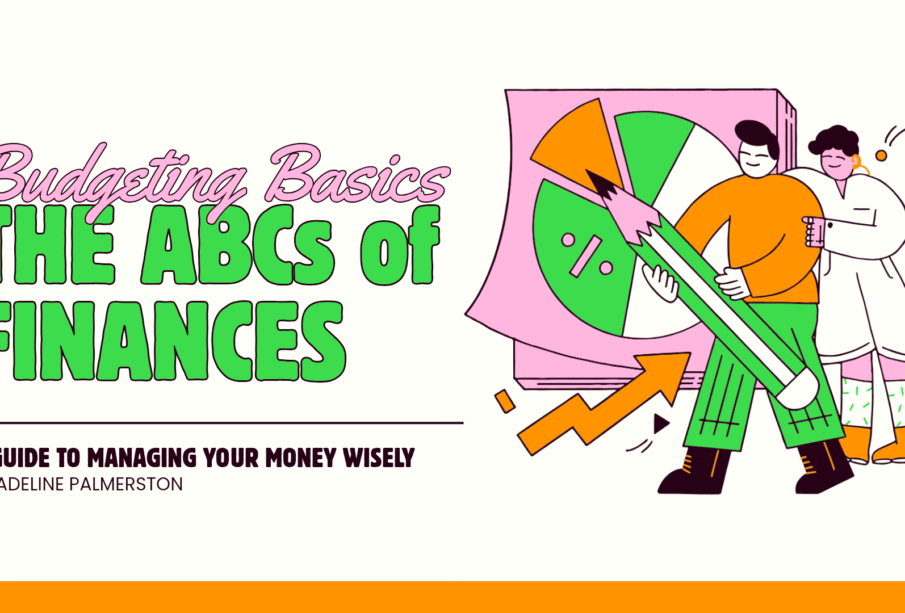“Mastering Personal Finance: A Complete Guide to Budgeting for Financial Freedom”

🏦 Mastering Personal Finance: A Deep Dive into Budgeting
Budgeting is the foundation of financial success. Whether you’re earning a modest income or a six-figure salary, having a personal budget can make the difference between living paycheck to paycheck and building lasting wealth.
Learn how to take control of your money with this complete guide to personal finance budgeting. Discover budgeting methods, tools, tips, and strategies to save more, spend wisely, and achieve financial freedom.
—
🔍 What is Personal Budgeting?
Budgeting is the process of creating a plan to spend your money wisely. This spending plan is called a budget. It lets you:
Determine whether you have enough money to do the things you need or want
Make informed decisions
Set and reach financial goals
—
📈 Why Budgeting Matters More Than You Think
A budget is not just about restricting spending—it’s a strategic tool to:
Achieve financial freedom
Eliminate unnecessary debt
Gain peace of mind
Prepare for life’s uncertainties
—
🎯 Key Benefits of Budgeting
1. Financial Clarity
Understand where your money is coming from and where it’s going.
2. Goal-Driven Living
Helps prioritize spending based on short and long-term financial goals.
3. Debt Reduction
Allows you to manage and pay off debts systematically.
4. Better Savings
Makes it easier to save consistently for emergencies, retirement, or big purchases.
5. Stress Reduction
Removes the anxiety of not knowing whether you can afford something.
—
🧠 Types of Budgets
There’s no one-size-fits-all approach. Common budgeting strategies include:
1. 50/30/20 Rule
50% for needs (rent, bills, groceries)
30% for wants (entertainment, travel)
20% for savings and debt repayment
2. Zero-Based Budget
Every dollar is given a job until you reach zero balance
3. Envelope System
Use cash in envelopes for each category to control spending
4. Pay Yourself First
Save a set amount before spending on anything else
5. Incremental Budgeting
Use last month’s budget and make small adjustments
—
📋 How to Create a Budget – Step-by-Step Guide
Step 1: Determine Your Income
Salary (net income after tax)
Freelance/side hustle earnings
Passive income (investments, rent)
Step 2: Track Your Expenses
Fixed: rent, EMIs, subscriptions
Variable: food, fuel, utilities
Irregular: birthdays, repairs, travel
Step 3: Set Clear Financial Goals
Short-term (1 year): emergency fund, new phone
Mid-term (1–5 years): car, down payment
Long-term (5+ years): home, retirement fund
Step 4: Choose a Budgeting Method
Pick one that matches your lifestyle and money habits.
Step 5: Track and Review Monthly
Budgeting is dynamic. Review your budget regularly and update as needed.
—
🛠️ Tools & Apps for Budgeting
Mint – Syncs all accounts and categorizes expenses
YNAB (You Need A Budget) – Zero-based budgeting expert tool
EveryDollar – Simple app from Dave Ramsey
Spreadsheets – Google Sheets or Excel (customizable)
Manual journals – Ideal for hands-on tracking
—
⚠️ Common Budgeting Mistakes to Avoid
1. Guessing expenses instead of tracking them
2. Not budgeting for irregular costs
3. Being too restrictive and unrealistic
4. Forgetting about fun or reward spending
5. Not including savings as a priority
6. Setting it and forgetting it—no monthly review
—
💸 How to Stick to Your Budget
Set realistic limits you can live with
Use cash envelopes for tricky categories
Schedule a weekly money date with yourself
Use alerts and reminders via apps
Avoid lifestyle inflation when income increases
—
💼 Budgeting for Different Life Stages
🎓 Students
Track student loan debt
Budget allowance or part-time job income
👩💼 Young Professionals
Start emergency fund
Save for retirement early (compound interest helps!)
👨👩👧👦 Families
Joint budgeting
Plan for children’s education and family emergencies
👵 Retirees
Prioritize healthcare
Plan drawdowns carefully
—
🧮 Emergency Funds & Sinking Funds
Emergency Fund: 3–6 months of living expenses
Sinking Fund: Set aside for future expenses like car repairs, gifts, or vacations
—
🔁 Budget Review Checklist (Monthly)
Did you stay within your limits?
Did you save as planned?
Any unplanned expenses?
Any changes to your income?
Adjust goals or categories accordingly
—
📊 Sample Budget Breakdown (Monthly)
Category Amount
Income $3,000
Rent $900
Groceries $300
Transportation $200
Utilities $150
Entertainment $150
Debt Payments $300
Emergency Savings $300
Retirement Fund $200
Miscellaneous $200
Total $3,000
—
🧭 Financial Goal Ideas to Include in Your Budget
Build an emergency fund
Pay off credit card debt
Buy a home
Start a side business
Travel fund
Save for a child’s education
🔄 The Psychology Behind Budgeting
How mindset affects money management
Emotional spending and how to control it
🧠 Smart Budgeting Habits to Build
Automating savings
Reviewing your budget weekly
Building a “no-spend” challenge
💳 Budgeting and Credit Cards
How to use credit cards wisely
Paying off credit card debt through budgeting
Avoiding interest and late fees
🧾 How to Budget on an Irregular Income
Budgeting for freelancers and gig workers
Creating a base budget with variable income
🎁 Budgeting for Special Events and Holidays
Planning for birthdays, weddings, holidays
How to avoid overspending during festive seasons
🧳 Budgeting for Travel
Saving monthly for a vacation
Travel hacks for budgeting before and during the trip
📉 What to Do When You Go Over Budget
Identifying why you overspent
Adjusting and recovering from setbacks
💼 Business Budgeting vs. Personal Budgeting
How personal and small business budgets differ
Keeping business expenses separate from personal finances
🧮 Using Budget Ratios for Better Control
Housing-to-income ratio
Savings rate
Debt-to-income ratio
📲 Best Budgeting Apps for Different Needs
Apps for couples
Apps for students
Apps for families
Offline vs. online tools
🏠 Budgeting for Big Life Changes
Moving to a new city
Getting married or divorced
Having a child
Losing a job or switching careers
🌱 Eco-Friendly Budgeting
Budgeting for a sustainable lifestyle
Saving money while helping the planet
🧓 Budgeting for Retirement
Budgeting on a fixed income
Managing healthcare and unexpected expenses
Budgeting Success Tips
Start today, even if it’s not perfect
Be honest about your spending habits
Involve your partner or family
Celebrate small wins (e.g., saving your first $1,000)
🏁 Final Thoughts
Budgeting is not about being perfect—it’s about being aware and intentional. With the right mindset and consistent habits, budgeting can transform your relationship with money, help you reach your goals faster, and lead to a more secure and fulfilling life.















